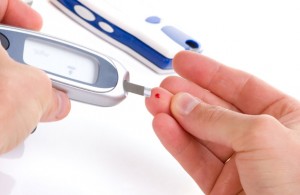Considering that the causes of this condition are not completely clear for the medical world, it is only fair that a person experiencing sign and symptoms of the illness is asking himself “What is diabetes?” The short answer to this question is that diabetes is part of the metabolic conditions and implies the presence of high glucose levels in the bloodstream (meaning high blood sugar levels). The illness is very closely related to the incapacity of the pancreas to produce sufficient insulin, the hormone that the body uses to distribute the glucose across the body. The reaction of the body towards insulin is the main criterion used in classifying diabetes in type 1 and 2.
According to the medical community, diabetes is a common disease that currently affects approximately 24 million Americans. However, even though it is quite common, doctors claim that there are actually significantly more people suffering from this disease and they do not even know about it. One of the main reasons for this is that the general population is not very familiar with the major symptoms of diabetes.
Consequentially, they learn they are suffering from this disease later on, mostly when the body becomes totally incapable of producing insulin on its own. It is important to note that once a person notices that he has an increased appetite, he is thirsty all the time and urinates more frequently than usual then it is time to see the doctor.
According to the World Health Organization, approximately ninety percent of the worldwide diabetics (people who demonstrate symptoms of diabetes) are suffering from diabetes type 2. However, what is really gruesome regarding this condition is the fact that, in 2007 it was among the top ten causes of death among Americans. In addition, statistics indicate that a type 2 diabetic dies once every ten seconds. So what makes diabetes rank amidst lethal and fatal illnesses of the century?
Is it the fact that people do not know enough about this condition and its long term consequences? Or is it the simple fact that people prefer handling it according to what they hear and know, rather than seeing a doctor?
Do you know that immediately after eating, the blood sugar levels in the body will increase up to 180 mg/dl because food is broke down into glucose and carried throughout the body? At the same time, between meals a healthy person is supposed to have a glycemia between 70 and 110. However, it is important to note that these values can only be maintained with the proper hormonal secretions of the pancreas. Therefore, if the pancreas was unable to produce insulin, when the blood glucose levels are high, or glucagon when they are low, that will lead to diabetes (see “what is diabetes”). In case the glucose levels were under the normal values then that person would suffer from hypoglycemia, whereas if they are above 180, then he will be suffering from hyperglycemia.

